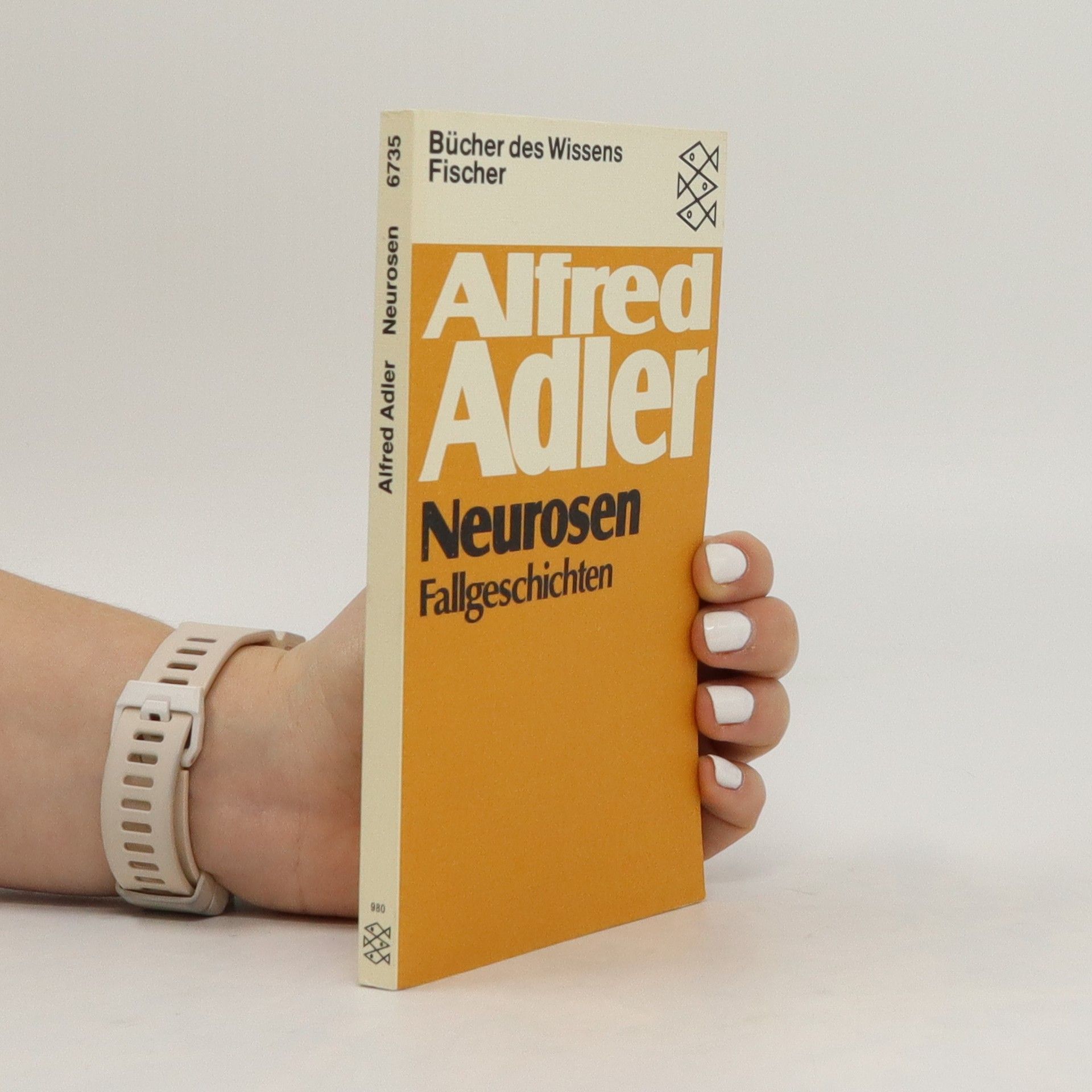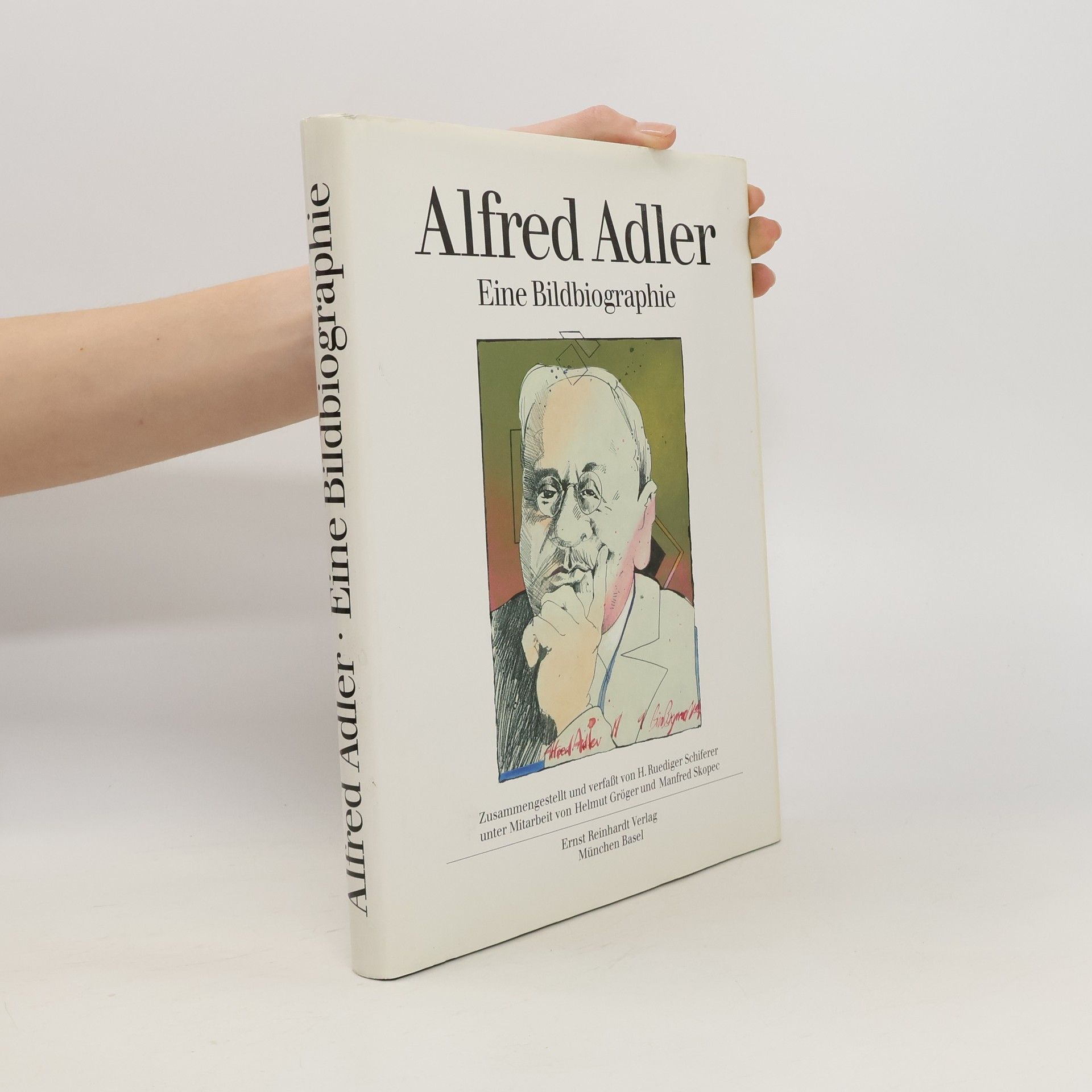Menschenkenntnis ist die Fähigkeit, das Verhalten und den Charakter anderer richtig zu deuten und zu beurteilen. Sie ist erlernbar und entscheidend für Beziehungen, Motivation und Beratung. Adlers Werk von 1927 betrachtet sie als wichtige, aber vernachlässigte Wissenschaft. Die ungekürzte Hardcover-Ausgabe ist nun erhältlich.
Alfred Adler Book order (chronological)
Alfred Adler was an Austrian medical doctor and the founder of individual psychology. He emphasized the significance of feelings of inferiority and their role in personality development. His work highlighted the interplay between external influences and internal dispositions, thus pioneering a holistic psychological approach.







Alfred Adler - Gesammelte Werke
- 924 pages
- 33 hours of reading
Die "Gesammelten Werke" von Alfred Adler bieten einen umfassenden Einblick in die Individualpsychologie, die neben Freud und Jung zu den Grundlagen der modernen Psychologie zählt. Sie enthalten zentrale Texte, die Adlers Fokus auf das Unbewusste und das soziale Individuum mit einem ausgeprägten Gemeinschaftsgefühl beleuchten.
Jahrbuch für Psychoanalytische Pädagogik - 17: Der pädagogische Fall und das Unbewusste
Psychoanalytische Pädagogik in kasuistischen Berichten
- 230 pages
- 9 hours of reading
Annäherungen an das Fremde
Ethnographisches Forschen und Arbeiten im psychoanalytisch-pädagogischen Kontext
- 215 pages
- 8 hours of reading
Psychoanalytisch-padagogisches Denken hat den Anspruch, Sinn im scheinbar Sinnlosen zu finden - und das vermeintlich Vertraute wie Fremdes zu betrachten, um den Tauschungen des Alltaglichen nicht permanent zu erliegen. Dabei gleicht die psychoanalytisch-padagogische Begegnung mit Kindern, Jugendlichen oder Familien der Arbeit des Ethnologen, der sich den Weg zum Verstehen von fremden Kulturen, ihren Einrichtungen und Reprasentanten erst bahnen muss. Die ethnopsychoanalytischen Arbeiten dieses Buches stellen Verbindungen zu interkulturellem Lernen her und thematisieren die Erforschung des Fremden in der eigenen Kultur, wenn es etwa um die Untersuchung von Leistungsschwierigkeiten oder rechtsradikalem Terror geht.
Das selbständige Kind
- 224 pages
- 8 hours of reading
Die Wiederentdeckung der Freude am Kind
Psychoanalytisch-pädagogische Erziehungsberatung heute
Was tun, wenn Eltern mit ihren Kindern nicht mehr zurecht kommen? Wie kann man die Sorgen und Nöte verstehen, mit denen diese Eltern ebenso zu kämpfen haben wie ihre Kinder? Unter welchen Voraussetzungen lassen sich Veränderungen überhaupt initiieren? Die Autoren und Autorinnen dieses Bandes gehen davon aus, dass Erziehungsberatung zu kurz greift, wenn sie die unbewusste Bedeutung von Erziehungsproblemen außer Acht lässt. Das Buch zeigt, in welcher Weise die unbewusste Bedeutung von Eltern-Kind-Problemen erschlossen und in die Beratungspraxis Eingang finden kann. Die Darstellung von Grundlagen und Gründzügen psychoanalytisch-pädagogischer Erziehungsberatung wird mit der Diskussion zahlreicher Fallbeispiele verbunden.
Základní Adlerovo dílo systematicky přibližuje základní principy a pojmy individuální psychologie. Díky svému přístupnému jazyku je kniha vhodným úvodem do díla tohoto slavného psychologa.
Schritte... - 1/95: Fördernder Dialog
Psychoanalytische Pädagogik als Handlungstheorie - Zum Gedenken an Hans-Georg Trescher
- 102 pages
- 4 hours of reading
Dokumentation der Akademischen Feier am 2. Dez. 1993 in der Evangelischen Fachhochschule Darmstadt zum Gedenken an Prof. Dr. habil. Hans-Georg Drescher 1950 - 1992







